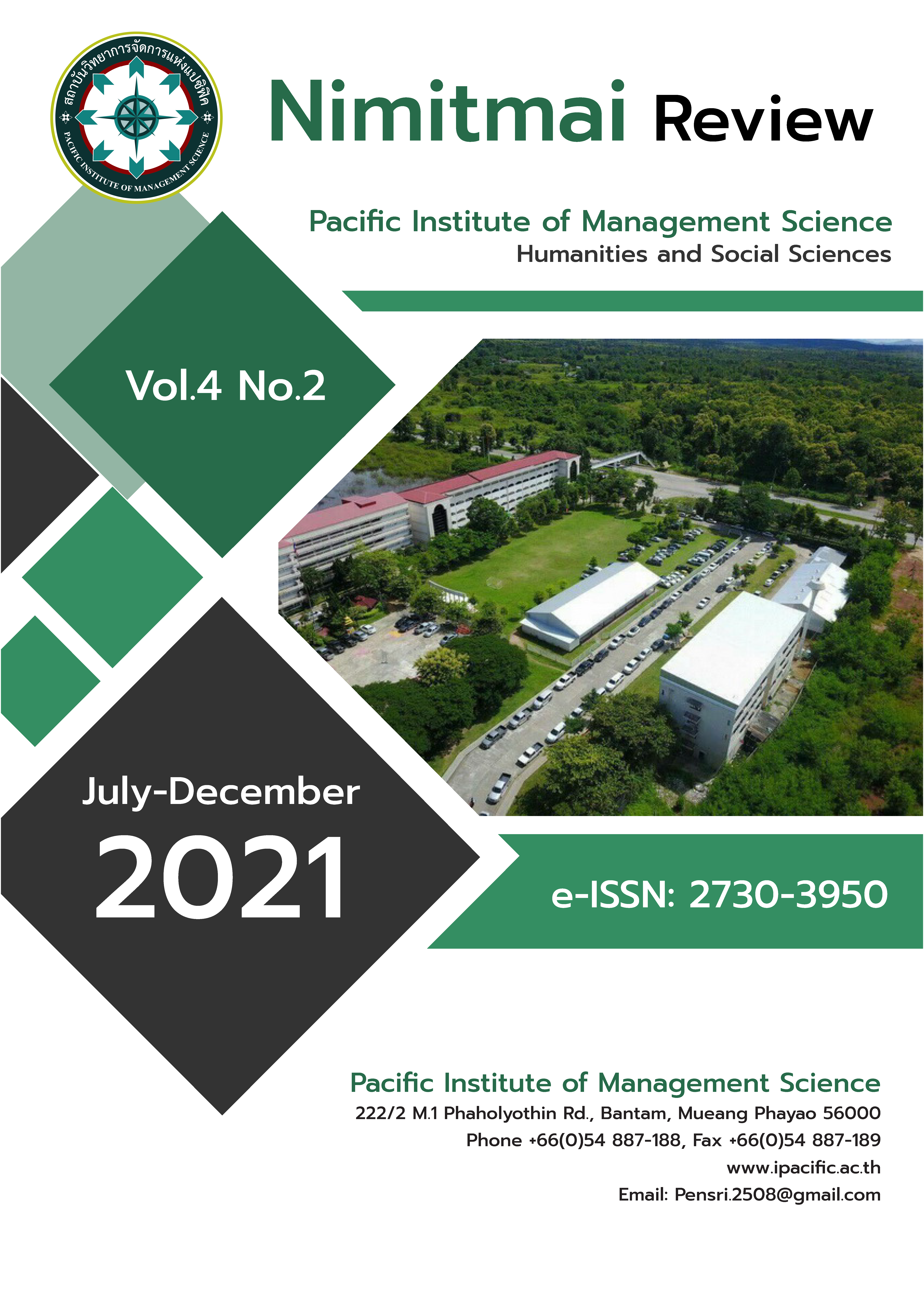Research on the Impact of Humble Leadership on Employee Engagement in the Construction Industry of Liaoning Province, China
Keywords:
Psychological empowerment, Construction industry, Humble leadership, Employee’s engagementAbstract
Under the background of information globalization, the living environment of enterprises is becoming more and more complex and changeable. In order to stand out in the fierce competition, organizations cannot do without the hard work and active input of employees. On the basis of social cognitive theory, this paper introduces psychological empowerment perception as a potential intervening and moderating variable to construct a theoretical model, and explores the mechanism of humble leadership on employee engagement in Liaoning construction industry under the background of Chinese organizational culture, so as to provide theoretical and practical support for a more comprehensive explanation of the influence of humble leadership on employee job outcome variables. Humble leadership has a significant positive impact on employee engagement in Liaoning construction industry, and psychological empowerment plays a partial mediating role in the relationship between humble leadership and employee engagement. The leadership style and behavior should be effectively matched with employees' work behavior, so as to further develop the effectiveness of leadership and keep employees in a highly engaged state at work.
References
Breevaart K, Bakker A B, Demerouti E, et al.(2016) Who takes the lead? A multi-source diary study on leadership, work engagement, and job performance[J]. Journal of Organizational Behavior, 37(3):309-325.
Bailey C, Madden A, Alfes K, et al.(2017). The Meaning, Antecedents and Outcomes of Employee Engagement: A Narrative Synthesis[J]. International Journal of Management Reviews, 19(1):1-23.
Cumberland D M, Shuck B,(2018). Immekus J, et al. An emergent understanding of influences on managers' voices in SMEs[J]. The Leadership & Organization Development Journal, 39(2):234-247.
Dong Tiantian, Yu Xuan.(2019). The influence of humble leadership on employee stewardship[J]. Shandong Social Sciences,284(04):134-138.
Fan Mengyao, Yu Hongyuan, Miao Yumeng.(2018) Research on the Engagement Degree of Salary Incentives in Technological Innovation Enterprises——Based on the Moderating Effect of Performance Management[J]. Education Modernization, 5(27):318-322 .
Gan Yanli.(2018) Analysis of the impact of corporate social responsibility on employee engagement[J]. Economic Research Guide, No.363(13):11-12.
Haynie J J, Flynn C B, Mauldin S.(2017) Proactive personality, core self-evaluations, and engagement: the role of negative emotions[J]. Management Decision, 55(2):450-463.
Johansen M S, Sowa J E.(2019). Human resource management, employee engagement, and nonprofit hospital performance[J]. Nonprofit Management and Leadership, 29(4):549-567.
Kirkland J, Edwards B D, Flaherty K E.(2021) The effect of honest and humble leadership on salesperson customer orientation[J]. Journal of Business Research, 130(5):49-58.
Li Qian.(2018) Analysis of the impact of human resource management intensity on employee engagement[J]. Human Resources Development, No.375(12):91-92.
Luo Yunna, Yang Gaosheng.(2019) The influence mechanism of humble leadership on employee creativity[J]. Science and Technology Management Research, 039(001):156-161.
Langford P H, Dougall C B, Parkes L P.(2017). Measuring leader behaviour: evidence fora "big five" model of leadership[J]. Leadership & Organization Development Journal, 38(1):126-144.
Liu Xin, Yang Dongtao, LIU, et al.(2017). Work autonomy and employee engagement: the moderating effect of self-monitoring and distribution justice [J]. Business Economics and Management, 04(No.148): 42-49.
Liu Hui, Sun Yaoyao.(2016). An Empirical Study on the Impact of Organizational Trust on Employee Engagement[J]. Journal of Chongqing University of Technology (Social Science Edition), 30(003): P.45-52.
Mauno S, Ruokolainen M, Kinnunen U, et al.(2016) Emotional labour and work engagement among nurses: examining perceived compassion, leadership and work ethic as stress buffers[J]. Journal of Advanced Nursing, 72(5):1169-1181.
Mao Renjie, You Xiaoyue.(2016) Cultivation of Employee Engagement: An Analysis and Reference from German Enterprises[J]. German Studies, 031(002): 116-128.
Nothwehr F, Rohlman D.(2019).Employer-Supported Volunteerism in Rural Worksites[J]. Workplace Health & Safety, 67(10):512-519.
Niu Fang, Zhang Ming, Yang Yonglin.(2016) Analysis of countermeasures to improve the engagement of the new generation of employees[J]. China Business Journal, No.679(12):162-164.
Park S, Chaudhuri S, Hewapathirana G I, et al.(2016) An Analysis of Award-Winning Refereed Articles From the Journals Sponsored by the Academy of Human Resource Development[J]. Human Resource Development Quarterly, 27(4):547-555.
Riggs B S, Porter C O L H.(2016). Are there advantages to seeing leadership the same? A test of the mediating effects of LMX on the relationship between ILT congruence and employees' development[J]. Leadership Quarterly, 28(2):285-299.
Prottas D J, Nummelin M R.(2018). Behavioral Integrity, Engagement, Organizational Citizenship Behavior, and Service Quality in a Healthcare Setting[J]. Journal of Healthcare Management, 63(6):410-424.
Skubinn R, Herzog L.(2016) Internalized Moral Identity in Ethical Leadership[J]. Journal of Business Ethics, 133(2):1-12.
Voegtlin C, Frisch C, Walther A, et al.(2021) Theoretical Development and Empirical Examination of a Three-Roles Model of Responsible Leadership[J]. Journal of Business Ethics,167(3):411-431.
Walters K N, Diab D L.(2016). Humble Leadership: Implications for Psychological Safety and Follower Engagement[J]. Journal of Leadership Studies, 10(2):7-18.
Yanling Yan, Junwei Zhang, Hong Zhang.(2019) Research on the relationship between active leadership and employee engagement: Based on the perspective of self-determination[J]. Research Management, V40(006):254-264.
Yu Jiaying.(2018). Talking about the impact of human resource management intensity on employee engagement[J]. Chinese and Foreign Entrepreneurs, No.598(08):52-53.
Yi Shizhi, Zhang Yanjing.(2016). Analysis of the relationship between the new generation of employee satisfaction and employee engagement[J]. Western Economic Management Forum (formerly Journal of Sichuan Economic Management College), 2016, 27(01): 71-74.
Ye Yindan, Liu Wen.(2020) Analysis on the Driving Factors of Employee Engagement in Manufacturing Enterprises[J]. Enterprise Economics, v.39; No.480(08):108-115.
Zhu Xiaomin.(2019) A review of research on corporate employee social responsibility and employee engagement[J]. Modern Economic Information, 000(019): 42-43.
Downloads
Published
How to Cite
Issue
Section
License
Copyright (c) 2021 Nimitmai Review Journal

This work is licensed under a Creative Commons Attribution-NonCommercial-NoDerivatives 4.0 International License.



